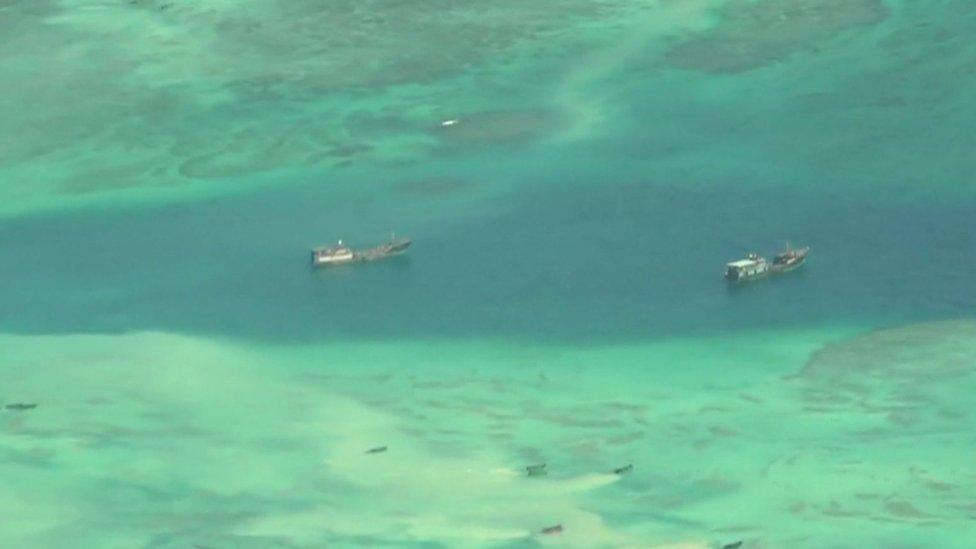South China Sea: China anger at Filipino disputed island protest
- Published
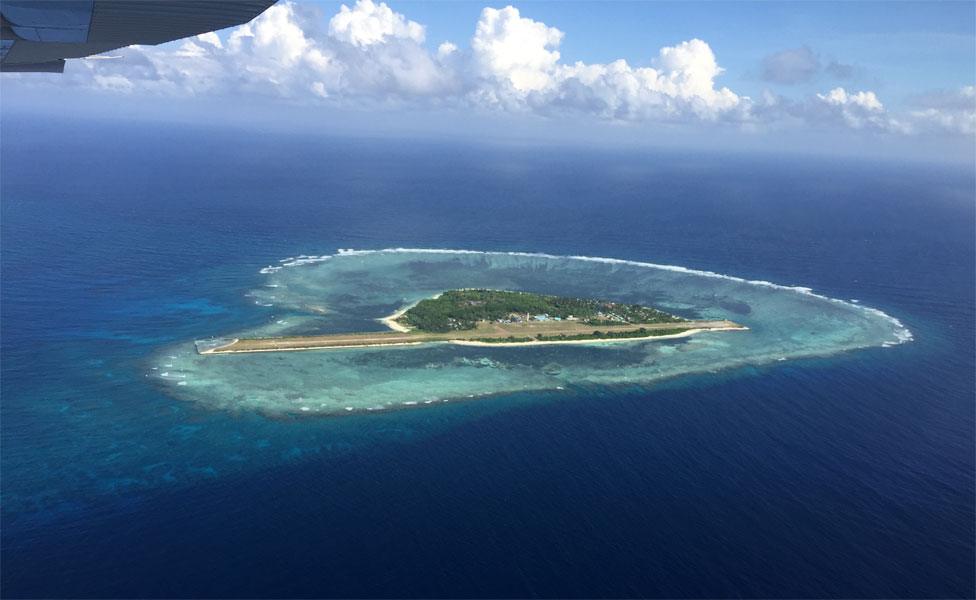
The island of Pagasa in the South China Sea is controlled by the Philippines
China has expressed anger after Filipino protesters landed on a remote island controlled by the Philippines in the disputed South China Sea.
"We once again urge the Philippines to withdraw... from the islands that it is illegally occupying," foreign ministry spokesman Lu Kang said on Monday.
It comes after about 50 protesters, mostly students, landed on Pagasa in the Spratly archipelago on Saturday.
They said they wanted to highlight growing Chinese encroachment.
China claims almost all the South China Sea, believed to be rich in resources, dismissing rival claims by neighbours.
Apart from the Philippines, Brunei, Malaysia, Taiwan and Vietnam all lay claim to the disputed waters.
The protesters, led by a former naval commander and called Kalayaan Atin Ito (Kalayaan This Is Ours), landed on Saturday and said they would stay for three days - they told the BBC that they would leave by 30 December.
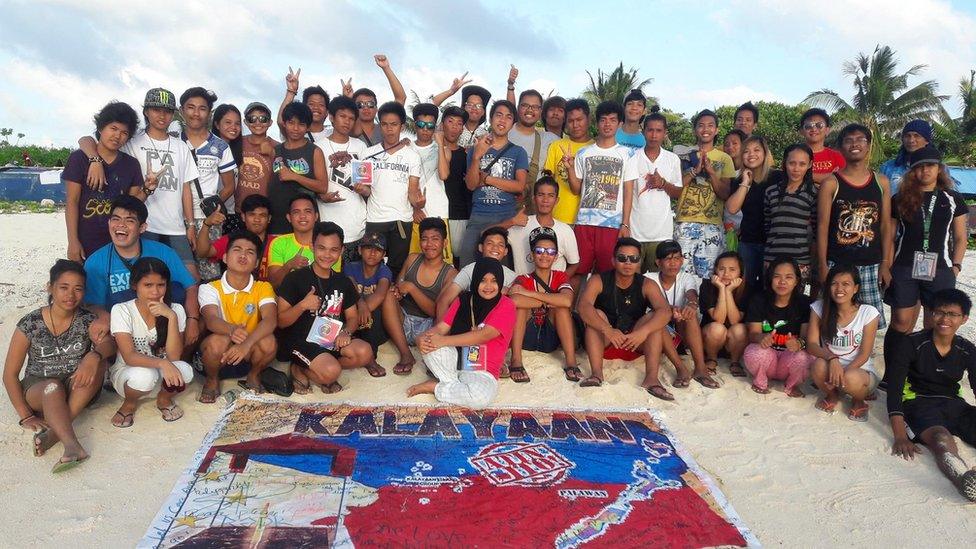
The protesters set up a Facebook page where they posted images of them on the island
They have described the journey as a "patriotic" voyage and a symbolic act of defiance against China. The government did not sanction the journey and citied safety and security concerns.
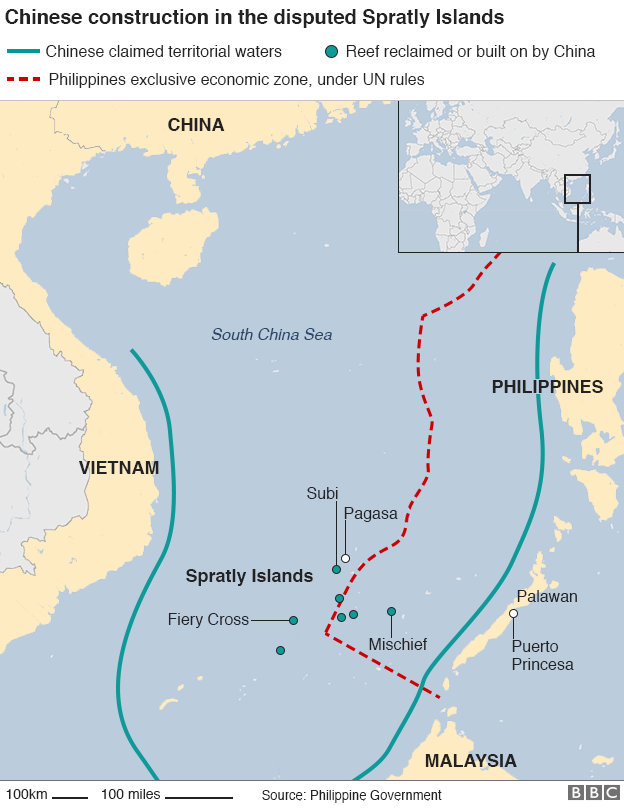
Tension has intensified over the last year, fuelled by China's aggressive island-building and naval patrols and the area has also seen the US and Australia undertaking freedom of navigation operations.
A recent BBC investigation witnessed at close quarters China's construction of new islands on coral reefs in the area and was repeatedly warned off by Chinese authorities while on a civilian flight in the vicinity of the islands.

Filipino activists have protested outside Chinese consular offices in Manila over China's construction activities
The Philippines has a case challenging Beijing before the arbitration court in The Hague. It says the "nine-dash line", which China uses to demarcate its territorial claims, is unlawful under the UN Convention on the Law of the Sea, which both countries have signed.
China has boycotted the proceedings, insisting that the panel has no authority to rule in the case.
- Published14 December 2015
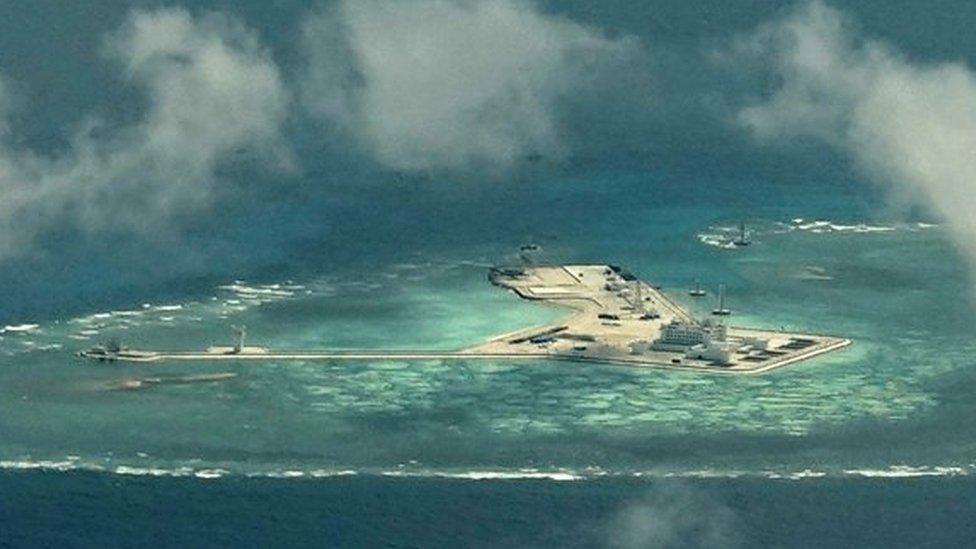
- Published7 July 2023
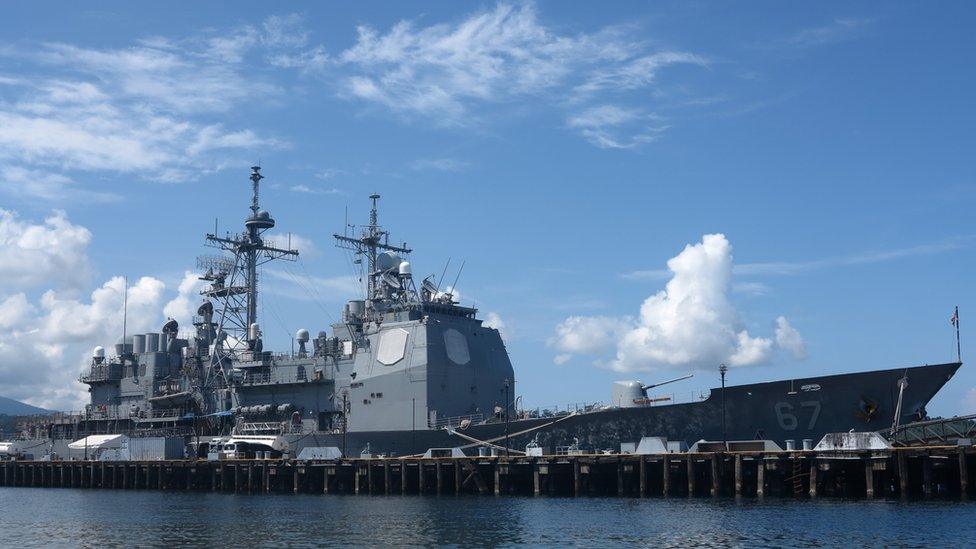
- Published3 May 2015
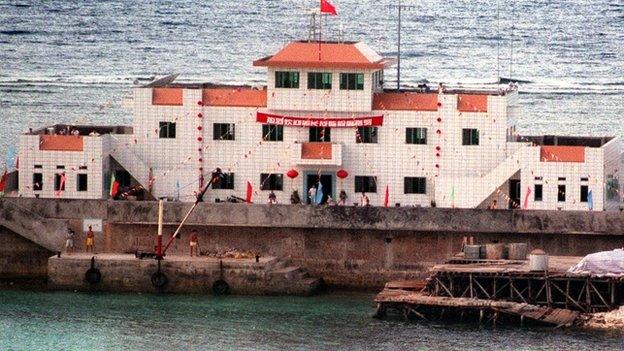
- Published15 December 2015
